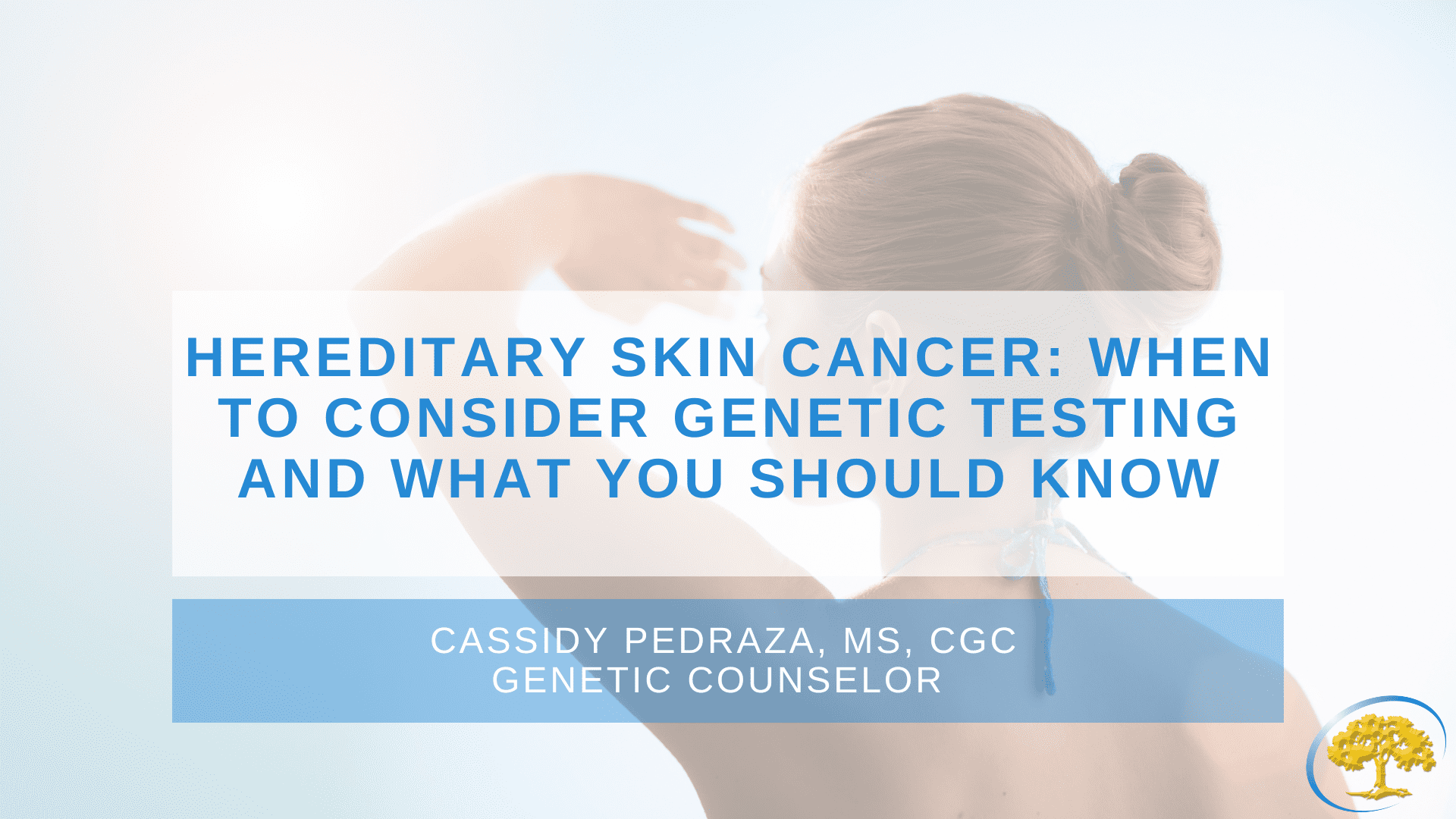
Posted 6 months ago
Hereditary Skin Cancer: When to Consider Genetic Testing and What You Should Know
Here in Arizona, we’re no strangers to intense sun exposure, especially during the summer months when temperatures climb to over 100 degrees. With over 300 sunny days a year, it’s no surprise that skin cancer can be a common health concern. In many cases, it’s caused by environmental factors, such as sun exposure, but for some people, they may have been born with an increased risk of developing skin cancer. While many cancers are not hereditary, about 5-10% can be linked to a genetic syndrome. These are conditions passed through families that can increase your risk of developing certain types of cancer, sometimes at an earlier age.
Types of Hereditary Skin Cancers and Related Syndromes
Below are some of the common types of skin cancer and the genetic syndromes that may increase your risk of developing them:
Familial Atypical Multiple Mole Melanoma (FAMMM) Syndrome
– CDKN2A gene
– Associated with multiple atypical moles and a high risk of melanoma
– Increases risk of pancreatic cancer
BAP1 Tumor Predisposition Syndrome
– BAP1 gene
– Increases the risk of uveal (eye) melanoma, cutaneous melanoma, and mesothelioma
– Increases risks for kidney cancer and possible other tumors
Gorlin Syndrome (also called Nevoid Basal Cell Carcinoma Syndrome)
– PTCH1 gene
– Leads to frequent basal cell cancers, often beginning in childhood or young adulthood
– Other risks include jaw cysts, ovarian or heart tumors, and brain tumors
Xeroderma Pigmentosum (XP)
– A rare condition that causes hypersensitivity to UV light
– Extremely high risk of all types of skin cancer, especially at a very young age
– Also increases the risk of eye and neurological problems
Fanconi Anemia
– Affects the body’s ability to repair DNA
– Associated with a higher risk of squamous cell cancer of the skin and other areas (head and neck, esophagus)
– Also causes bone marrow failure and increases risk for blood cancers
When Should You Consider Genetic Testing for Hereditary Skin Cancer?
You may want to consider talking to your doctor or a genetic counselor about testing if you or a family member have experienced any of the following:
– Multiple primary melanomas or invasive melanomas
– Eye (uveal) melanoma or mesothelioma
– Family history of invasive melanomas in addition to pancreatic cancer or kidney cancer
– Known family history of a cancer-related genetic mutation (like CDKN2A, BAP1, or PTCH1)
A genetic counselor can help assess your personal and family history to determine if testing is right for you. Knowing if you carry a genetic mutation linked to hereditary skin cancer does not mean you will develop cancer – only that you have an increased risk of developing skin cancer. The benefit of knowing this information can help you take preventative steps such as more frequent skin exams, as well as inform you of the possible risk of developing other types of cancer. Since this can run in the family, it may also provide valuable information for your family members who might also be at risk.
Cassidy Pedraza, MS, CGC
Cassidy joined Ironwood Cancer Center and Research Centers in February 2025. She obtained her Bachelor of Science in Biology with a minor in psychology from Cal Poly San Luis Obispo and her Master of Science in Genetic Counseling from Arizona State University. During her training at Arizona State, she completed several clinical rotations at various institutions including Banner, Mayo Clinic, Ironwood Cancer Center, and Phoenix Children’s Hospital. She is a member of the National Society of Genetic Counselors. Her interests in genetic counseling include cancer genetics and improving health care access. Outside of work, Cassidy enjoys traveling, spending time with her friends and family, and trying new restaurants.
Please ask your Ironwood Cancer & Research Centers doctor for a referral to see our genetic counselor.

